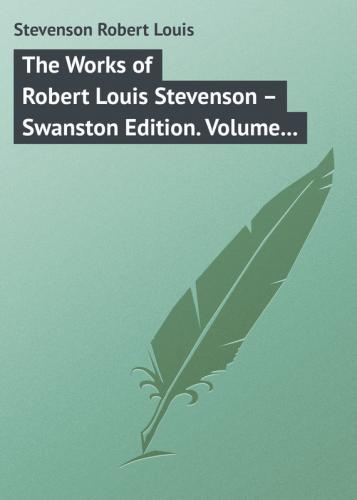It was by his style, and not by his matter, that he affected Wordsworth and the world. There is, indeed, only one merit worth considering in a man of letters – that he should write well; and only one damning fault – that he should write ill. We are little the better for the reflections of the sailor’s parrot in the story. And so, if Burns helped to change the course of literary history, it was by his frank, direct, and masterly utterance, and not by his homely choice of subjects. That was imposed upon him, not chosen upon a principle. He wrote from his own experience, because it was his nature so to do, and the tradition of the school from which he proceeded was fortunately not opposed to homely subjects. But to these homely subjects he communicated the rich commentary of his nature; they were all steeped in Burns; and they interest us not in themselves, but because they have been passed through the spirit of so genuine and vigorous a man. Such is the stamp of living literature; and there was never any more alive than that of Burns.
What a gust of sympathy there is in him sometimes flowing out in byways hitherto unused, upon mice, and flowers, and the devil himself; sometimes speaking plainly between human hearts; sometimes ringing out in exultation like a peal of bells! When we compare the “Farmer’s Salutation to his Auld Mare Maggie,” with the clever and inhumane production of half a century earlier, “The Auld Man’s Mare’s dead,” we see in a nut-shell the spirit of the change introduced by Burns. And as to its manner, who that has read it can forget how the collie, Luath, in the “Twa Dogs,” describes and enters into the merry-making in the cottage?
“The luntin’ pipe an’ sneeshin’ mill
Are handed round wi’ richt guid will;
The canty auld folks crackin’ crouse,
The young anes rantin’ through the house —
My heart has been sae fain to see them,
That I for joy hae barkit wi’ them.”
It was this ardent power of sympathy that was fatal to so many women, and, through Jean Armour, to himself at last. His humour comes from him in a stream so deep and easy that I will venture to call him the best of humorous poets. He turns about in the midst to utter a noble sentiment or a trenchant remark on human life, and the style changes and rises to the occasion. I think it is Principal Shairp who says, happily, that Burns would have been no Scotsman if he had not loved to moralise; neither, may we add, would he have been his father’s son; but (what is worthy of note) his moralisings are to a large extent the moral of his own career. He was among the least impersonal of artists. Except in the “Jolly Beggars,” he shows no gleam of dramatic instinct. Mr. Carlyle has complained that “Tam o’ Shanter” is, from the absence of this quality, only a picturesque and external piece of work; and I may add that in the “Twa Dogs” it is precisely in the infringement of dramatic propriety that a great deal of the humour of the speeches depends for its existence and effect. Indeed, Burns was so full of his identity that it breaks forth on every page; and there is scarce an appropriate remark either in praise or blame of his own conduct but he has put it himself into verse. Alas for the tenor of these remarks! They are, indeed, his own pitiful apology for such a marred existence and talents so misused and stunted; and they seem to prove for ever how small a part is played by reason in the conduct of man’s affairs. Here was one, at least, who with unfailing judgment predicted his own fate; yet his knowledge could not avail him, and with open eyes he must fulfil his tragic destiny. Ten years before the end he had written his epitaph; and neither subsequent events, nor the critical eyes of posterity, have shown us a word in it to alter. And, lastly, has he not put in for himself the last unanswerable plea? —
Конец ознакомительного фрагмента.
Текст предоставлен ООО «ЛитРес».
Прочитайте эту книгу целиком, купив полную легальную версию на ЛитРес.
Безопасно оплатить книгу можно банковской картой Visa, MasterCard, Maestro, со счета мобильного телефона, с платежного терминала, в салоне МТС или Связной, через PayPal, WebMoney, Яндекс.Деньги, QIWI Кошелек, бонусными картами или другим удобным Вам способом.
